Keywords: Derrida; aporia; gift; exchange; event; impossibility; power; deconstruction
This paper analyses two approaches of giving in Derrida's book Given Time: one of them is logical, semantic, the other ontological. To consider a question of the gift from a logical, semantic aspect is to encounter the aporia of the gift. In common language and logic a gift means that someone gives something to somebody else. Derrida's aporia of the gift is that the conditions of the possibility of the gift are the conditions of its impossibility.
More...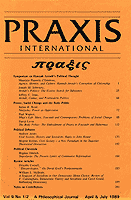
Nietzsche et les “volontés de puissance”. L’étude part de la triple considération de la “volonté de puissance” en tant que concept, projet littéraire et «oeuvre capitale» de Nietzsche. Ainsi, tandis que le concept est clairement défini du point de vue philosophique dans les textes tardifs de Nietzsche (anthumes et posthumes), et le projet, lancé toujours dans les dernières années de la vie active du philosophe, semble avoir été abandonné peu avant son écroulement turinois, l’oeuvre capitale connaîtra un triste succès pendant les décennies qui suivront la mort de son “auteur”. La deuxième partie de l’étude analyse la manière dont les textes de Nietzsche ont été manipulés politiquement par une soeur abusive avec la complicité d’un milieu culturel en déroute, ce qui a permis et encouragé, du même coup, l’avènement du nazisme et d’une idéologie biologiste-raciale de la “bête blonde” et de la “vie dangereuse”, tellement étrangère à l’esprit philosophique de l’Eternel Retour et de la Volonté de Puissance.
More...Se apropie, poate, momentul în care cuvintele nu vor mai semnifica prin pura lor imperfecţiune si nici prin pluralitatea ce le munceste din interior. Momentul în care privirea asupra textului va înceta să fie interpretativă, fără a deveni prin aceasta erotică, si va dobîndi fixitatea delirului non-ficţional. Un text, cum este cel al lui Deleuze despre Nietzsche, va înceta să-l mai organizeze pe ultimul, chiar dacă maniera acestei organizări este pura mobilitate. Dincolo de orice cauzalitate grosieră, dar, mai ales, dincolo de orice complicitate subterană între gîndire si fiinţă, între text si realitate, gîndirea va gîndi cu realităţi, cu obiecte pure, încremenite si metamorfotice, cu obiecte ale desenelor animate unde, fără nici o metonimie de atribute, balonul din gumă de mestecat devine (mai precis, este) balon meteorologic umplut cu heliu, ridicînd personajul în aer, pentru ca, la rîndul lui, acest balon meteorologic să-si secrete propriul ac, care-l va sparge etc.
More...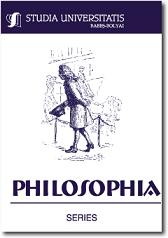
Keywords: Nietzsche; modernity; values; crisis; decadence; nihilism.
Nietzsche and the Crisis of Modernity. One of the major lines of Nietzsche's philosophical discourse is given by the critique of modernity. A critique as such concerns especially the critique of European values and thus the critique of morality, a morality interpreted within the metaphysical thinking as it is represented within a long tradition. Thus, the European culture is subjected by Nietzsche to a severe analysis, the conclusion of its whole approach being that modernity has lost its fundamental lines, precisely as a result of the disintegration of all values, and finds itself, as such, in a crisis. An emergence out of such a state is for Nietzsche an interrogation and, consequently, a reevaluation of all values, believing that only thus can decadence and nihilism, that configure the European culture of its time, be overcome.
More...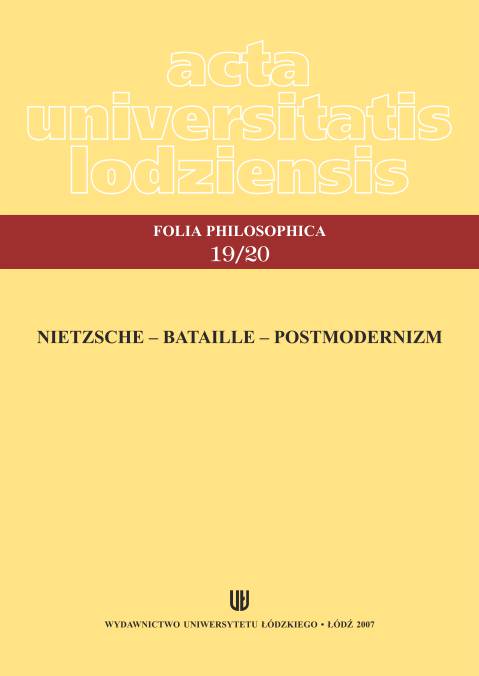
Keywords: Nietzsche; romanticism;
Das Thema "Nietzsche und die Romantik" stellt eine unerschöpfliche Forschungsquelle und dabei ein mehrdimensionales, hermeneutisches Problem in der Literatur- und Philosophiegeschichte dar. Als erster nahm Karl Joël in seiner 1905 erschienenen Monographie "Nietzsche und die Romantik" die Frage der geistigen Verwandtschaft Nietzsches mit romantischen Autoren und der Verwurzelung seiner Philosophie in dem romantischen Komplex unter die Lupe. Aufschlussreiche Forschungsergebnisse lieferten darüber hinaus die Arbeiten von Ernst Behler, Linda Duncan, Ingrid Hennemann Barale, Steffen Dietzsch, Norbert Langer und Dirk von Petersdorff. Insgesamt gehen die Meinungen der Forscher über Nietzsches Verhältnis zur Romantik auseinander. Die einen lehnen entschieden die These, Nietzsche sei der Fortsetzer der romantischen Linie, ab. Die anderen dagegen betonen die weltanschaulichen Ähnlichkeiten in der Denkweise des deutschen Philosophen und der Jenaer Romantiker und halten Nietzsche für den wichtigsten Entdecker der romantischen Motive. Es unterliegt keinem Zweifel, dass Nietzsches Beziehung zur Romantik durch Ambivalenz gekennzeichnet ist. Man muss aber in seinem Falle zwischen den verschiedenen Gestalten und Phasen der Romantik unterscheiden. Mit Sicherheit tritt er gegen die Romantik als die schmerzen- und leidensmildernde Erscheinung auf, die mit "Hunger" und nicht "Überfluss" zu assoziieren ist. Die romantische Kunst als "stimulans des Lebens" wird dann der dionysischen gegenübergestellt, die das Leben bejaht und das Tragische am Leben erscheinen lässt. Die negative Einschätzung der Romantik verbindet sich hier vor allem mit der Kritik an Wagner und Schopenhauer, also den absoluten Meistern aus der Frühphase im Schaffen Nietzsches. Einen anderen Bezugspunkt bietet aber die unterschwellige, geistige Verwandtschaft Nietzsches mit den Schöpfern der Frühromantik, worauf bereits Ernst Behler hingewiesen hat. Die Periodisierung und Differenzierung der Romantik lag zu Lebzeiten Nietzsches nicht vor. Es bleibt auch eine offene Frage, inwieweit der Autor des "Zarathustra" mit den Werken der Jenaer Romantiker vertraut war. Seine Novalis-Lektüre ist zwar dokumentiert, die ästhetischen Vorlesungen von August Wilhelm Schlegel sollen ihm bekannt gewesen sein, aber die eventuelle Friedrich-Schlegel-Lektüre kann durchaus in Frage gestellt werden. Empirische Befunde können somit nicht als ein Ausgangspunkt für die Bearbeitung der Parallelen im Werk Nietzsches und der Jenaer Romantiker dienen. Den Schwerpunkt soll man auf die geistig verwandte ästhetische Weltwahrnehmung und die aktive Form des Denkens legen, das von der widersprüchlichen Struktur des Seins ausgeht. Die Hauptidee gründet sich auf die zerstörerisch-schöpferische, und dadurch ironische, Konzeption des Lebens, die an das Postulat der Poetisierung und Revolutionisierung der Welt, das in-Frage-stellen der Wahrheit und die dynamische [...]
More...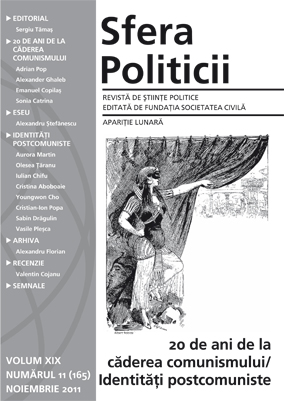
Keywords: Morals; Religion; Judaism; Christianity; Good; Evil; Will to Power
The present text is concerned with depicting an imagery of fundamental opposition between Friedrich Nietzsche on the one hand, and Judeo-Christianity, on the other. Since the vigorous and authentic society of the Ancients is falsely an unwarrantedly substituted by an ever-growing Christian paradigm, Nietzsche’s response will tend to identifying, as well as possibly curing the Judeo-Christian disease on a social and moral level. We therefore investigate his denouncement of a falsely-oriented cultural way of life and thought by addressing the two halves of his philosophical project: morals and religion. Moreover, in the final part of the current paper we will briefly concern ourselves with some political, as well as cultural implications stemming from his radical views.
More...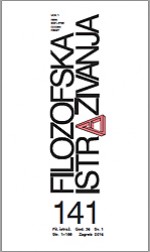
Keywords: Pre-Socratics; Friedrich Nietzsche; intuition; existence; Logos; Heraclitus; being;, Parmenides; hybris; apeiron;
Referring to Nietzsche’s monograph Philosophy in the tragic age of the Greeks, Eugen Fink criticized the disappearance of the notion of being and added that the mentioned work is “imbued with the unique charm”. It is a very large and unusual contrast “between Nietzsche’s intuitive grasp of substantial destruction and its understanding”, primarily finding it in its relation to the Greek philosophy. In the Greeks, Nietzsche discerns bold courage for evidence of philosophy of life, unceasingly seeing, with his inner eye, a “sophisticated communication among great spirits” in the history of Pre-Socratic thinkers. Above else, in Pre-Socratic thinkers Nietzsche recognizes great metaphors – in other words – the genuine intuition, suppressed (through time) and finally annihilated by reflections of a reasoning mind.
More...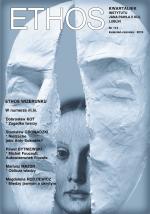
Keywords: Nietzsche; Socrates; image; creation; decadentism; irony; identity
In the present article I address the problem of Nietzsche’s self-identifi cation with the fi gures he created in his writings, which determined both the shape of his philosophy and his spiritual development. I argue that, in the whole array of these self-identifi cations, the image of Socrates was of special importance to Nietzsche. The philosopher himself does not appear a mere imitator of Socrates though, neither may he be considered as his staunch opponent. While the Socrates Nietzsche created may be occasionally appraised negatively, as representing the type of the ‘theoretical man’ or the ‘decadent,’ he may simultaneously aspire to the role of a ‘tragic,’ ‘music-making’ man. However, it is owing to the figure of Socrates that Nietzsche may analyze the condition of science, or such phenomena as morality and decadence. All this simultaneously shows that the complexity of Nietzsche’s attitude to the protagonist he created determines the ambiguity of his own image as a philosopher, a theoretical man as much as an ironist and a philosopher of life.
More...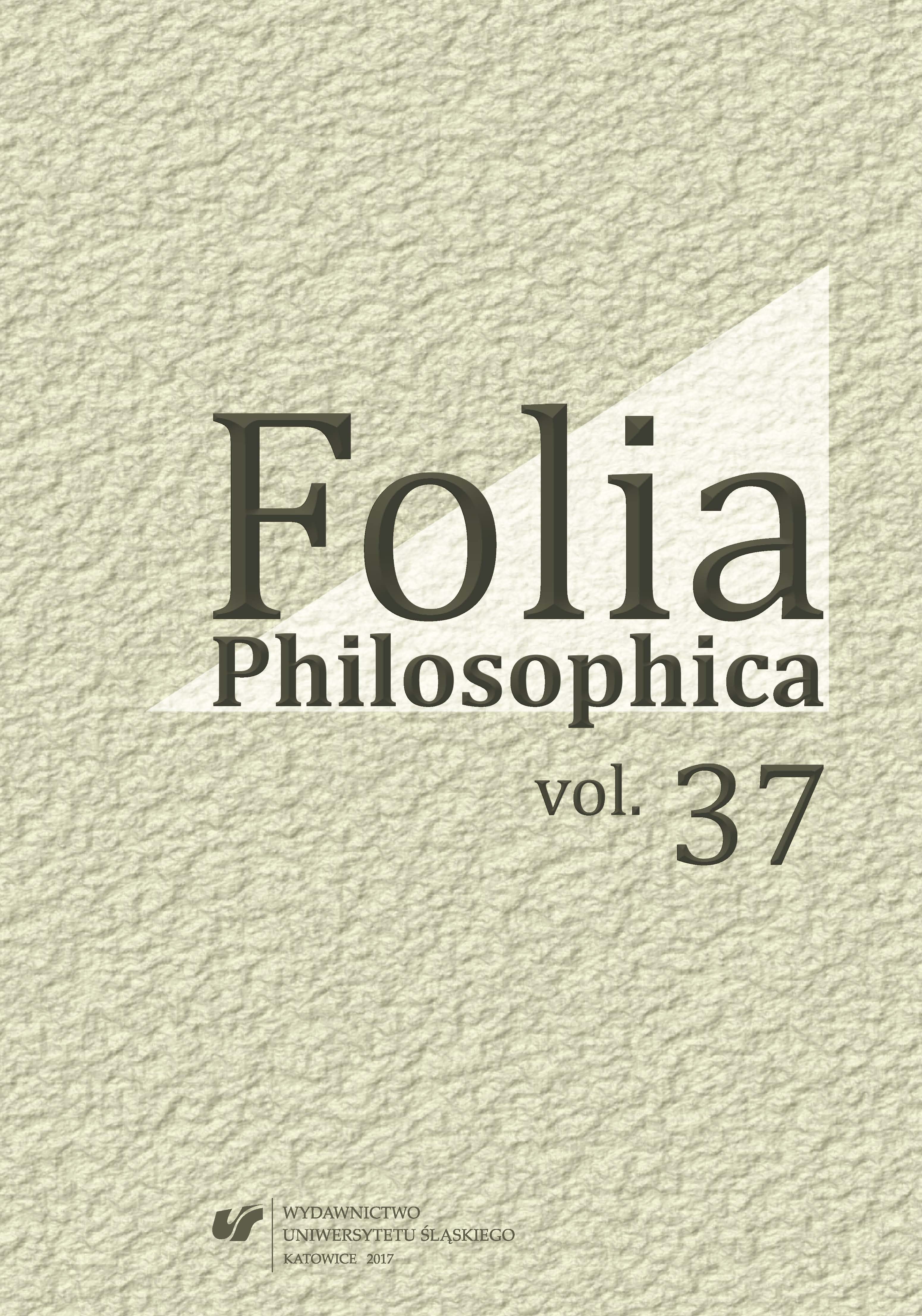
Keywords: Patočka; Nietzsche; human existence; the world as a whole; absolute meaning; ambiguity of the happening; situational meaning
In framing the question about the meaning of man and human history, Patočka draws on historical-philosophical and phenomenological sources. By tracking the genesis of the concept of eternity from Kant to the 20th century, he concludes that human meaning cannot be derived from moral postulates which exceed finitness of man. By abandoning the concept of eternity, Patočka concludes, the question of meaning cannot be bound by human targets, because the purpose is already objectified, existing without the horizon of one‘s being, and in this it takes the form of a relative meaning. The meaning, according to Patočka, is phenomenologically bound to non-objective being, thus implying that the meaning is problematic, unreal, yet constantly perpetuated. Patočka implements this attitude to criticise nihilism and especially to point out the unacceptability of active nihilism, a concept whichNietzsche introduced to philosophy. Patočka is critical of Nietzsche’s understanding of realised meaning in terms of overman by rejecting his idea of will to power (he understood it as ruthless animal life in the form of the highest being) and the doubtful idea of eternal recurrence. In his attitude to Nietzsche, Patočka echoes the opinion presented by Heidegger, who called Nietzsche the consummator of modern subjectivity. Present research (Kouba) shows that phenomenology may profit more if it applies both Nietzsche’s ideas to its own area and uses them in the analysis of the situational meaning that is constantly (by contradiction) bound to the horizon of the possibility of the situation without sense — a meaningful situation is suppressed, not realised, but its validity and consistency with the horizon of meaning do not disappear. In this view, it appears that Nietzsche’s understanding of meaning is also problematic, but this problematic nature is not bound to absolute meaning.
More...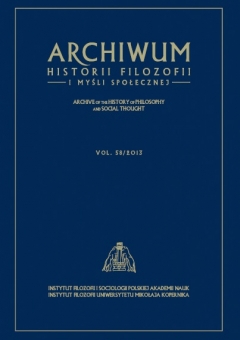
Keywords: Nietzsche; naturalism; anti-naturalism; philosophy of life;
Nietzsche has been associated with naturalism due to his arguments that morality, religion, metaphysics, and consciousness are products of natural biological organisms and ultimately natural phenomena. The subject and its mental life are only comprehensible in relation to natural desires, drives, impulses, and instincts. I argue that such typical naturalizing tendencies do not exhaust Nietzsche’s project, since they occur in the context of his critique of “nature” and metaphysical, speculative, and scientific naturalisms. Nietzsche challenges otherworldly projections of this-worldly beings, as his naturalistic interpreters claim, but further the idolization of immanent worldly natural phenomena, including science itself. “Nature” is an idealization of natural organisms and environments in which its construction, projection, and interpretation is forgotten. Nietzsche strategically uses naturalistic scientific strategies of explanation and demystification, while demystifying science, positivism, and naturalism for the sake of life. These do not provide either certainties or foundations for knowledge or life. Naturalism would be anti-natural if it denies of multiplicity and conflict of the forces of life, bracketing the natural and historical conditions of existence, and the interpretive and perspectival character of life and knowledge. The nexus of nature and history in Nietzsche is better clarified through his portrayal of the feeling of life and its intensification, attenuation, and transformation in relation to the forces and conditions of life, which encompass processes of socialization and interpretive and artistic individuation in the context of a life.
More...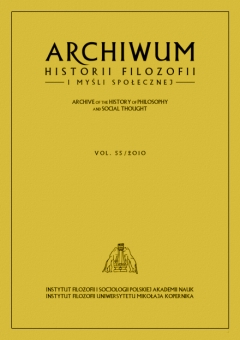
Keywords: Heidegger; Nietzsche; being; ontology; perspectivism; interpretation;
The point of departure in the paper is the problem of Heidegger’s interpretation of Nietzsche’s thought in the light of the problematic term “Perspektivismus”. The author explicates the methodological position taken by Heidegger in his interpretation to give an answer to the question of epistemical, ontological or methodological domain of perspectivism.
More...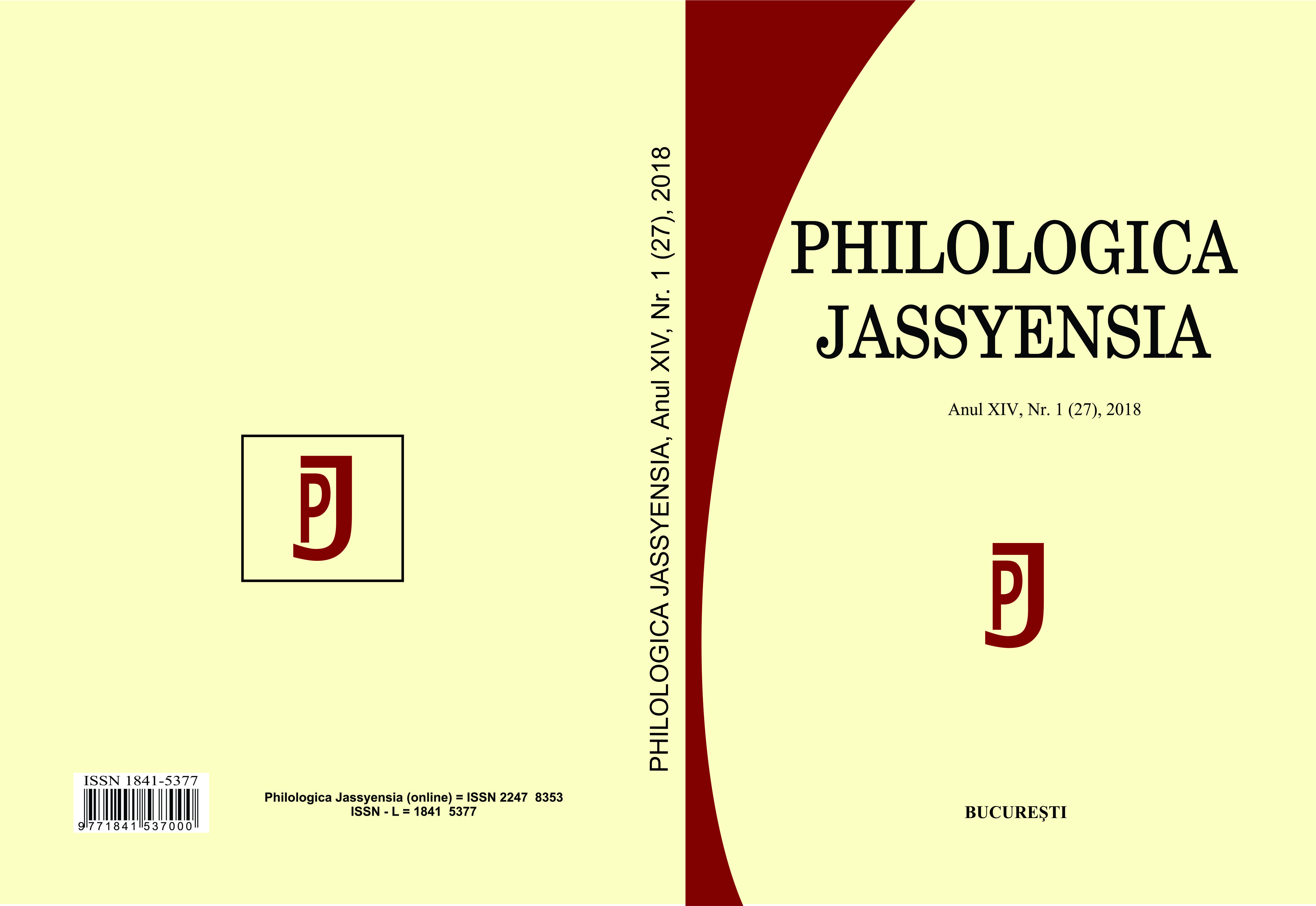
Keywords: Nietzschean; Expressionism; myth; Dacians; Dionysian
A discussion of the influence of Friedrich Nietzsche’s work on the Romanian poet and philosopher Lucian Blaga at the beginning of his career. The effects of Nietzsche’s thought and of German Expressionism were strong on Blaga’s early poetry and, especially, on his first play, about the Dacian prophet Zalmoxe. Although the affinities between Zalmoxe and Nietzsche’s Zarathustra are abundant, Blaga’s play is not an affirmation of Nietzsche’s philosophy. Rather, Blaga is engaged in creating his own myth of Zalmoxe in order both to explore the hidden life force of the Dacians and to reveal his own philosophy of life.
More...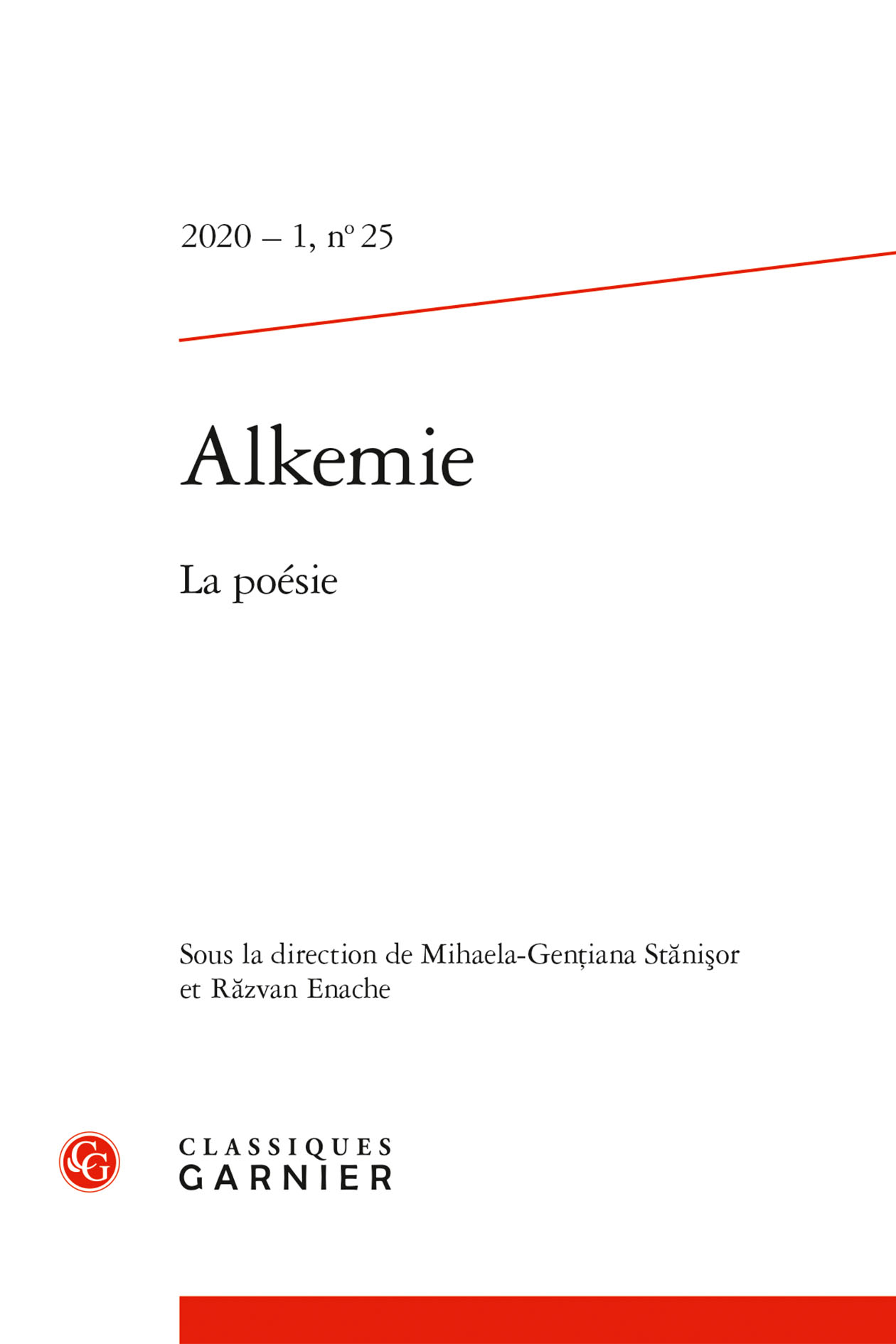
Keywords: Nietzsche;poésie;philosophie;métaphysique;mort de Dieu;poetry;philosophy;metaphysics;death of God;
Alors que Nietzsche proclame la mort de Dieu, la poésie du xxe siècle se caractérise principalement par une distance avec le religieux. Que signifie pour le poète post-nietzschéen la privation de Dieu, autrement dit de l’horizon métaphysique ? Que peut la poésie sans transcendance ? While Nietzsche proclaims the death of God, the poetry of the twentieth century distances itself from the religious. What does the deprivation of God, in other words the deprivation of a metaphysical horizon, mean for the post-Nietzschean poet? What is poetry without transcendence?
More...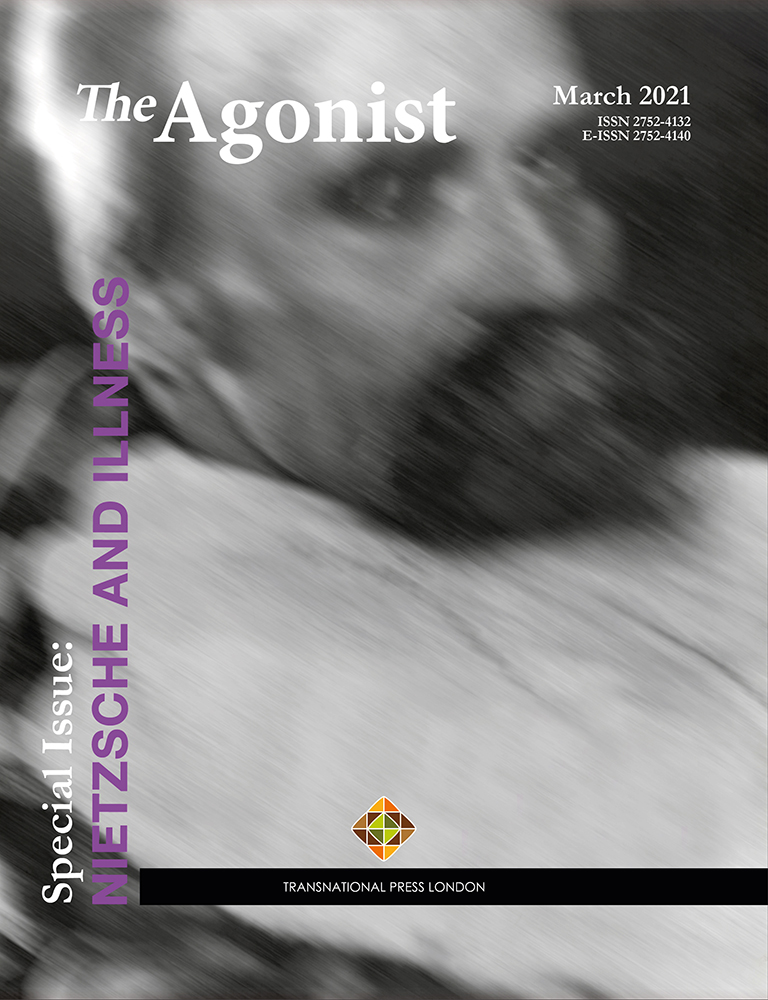
Keywords: pandemic; Covid-19; Nietzsche; nutrition;
Because of the current coronavirus pandemic, international organisations pay a lot of attention to the importance of a healthy diet. Nietzsche, too, wrote extensively about this topic. In how far could his insights have an added value for our current situation? To answer this question, we will look at Nietzsche’s use of the words ‘stomach’ and ‘digestion’. We shall see that Nietzsche discusses these concepts against the background of his cultural critique of modernity. It is two, seemingly incompatible, ideals of a strong stomach that are dominant in Nietzsche’s discourse: the stomach that searches for the largest ‘opposites’ and the ‘indigestible’ on the one hand, and the stomach that is very selective and picky, and only digests what suits him. In the end, a third factor is added: the classic ideal of ‘know thyself. This ideal brings together the two former opposites (as it fits some stomachs best to search for their opposites) and it proves to be productive for the current discussions in medical ethics.
More...
Keywords: Nietzsche; sickness; health; pandemic;
Living in the time of a pandemic, where illness has become a prominent concern, it might do well to consider Nietzsche’s thinking on sickness and health, which is far from a clear-cut delineation and calls for careful and circumspect analysis. I begin by distinguishing three types of sickness and health: physical, psychological, and cultural, where health in each type can initially be understood as flourishing unimpaired by sickness. Physical illness involves some infirmity of the body, such as cancer or viral infection. Psychological illness is some malady of the mind, such as depression. Cultural illness is the kind of thing emphasized by Nietzsche and involves a worldview that is symptomatic of life denial and nihilism when measured against natural life instincts, energies, and needs—for instance, the story Nietzsche tells about slave morality and its production of the ascetic ideal that has contaminated Western thought.
More...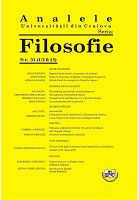
Keywords: Nietzsche; art; aesthetics; metaphysics; physiology; life;
The present article outlines Nietzsche’s views on art. In this respect, it reveals the fact that Nietzsche's opinions about art are constant, but not consonant and homogeneous. His aesthetic insight is rather protean, that is what is first a metaphysical outlook turns then into a rationalist-skeptical one and finally it gains the features of an aesthetic physiology. The aim of this study is to trace the basic outlines of the evolution of Nietzsche's thinking by revealing the various aspects of art as well as they appear in Nietzsche’s philosophical system.
More...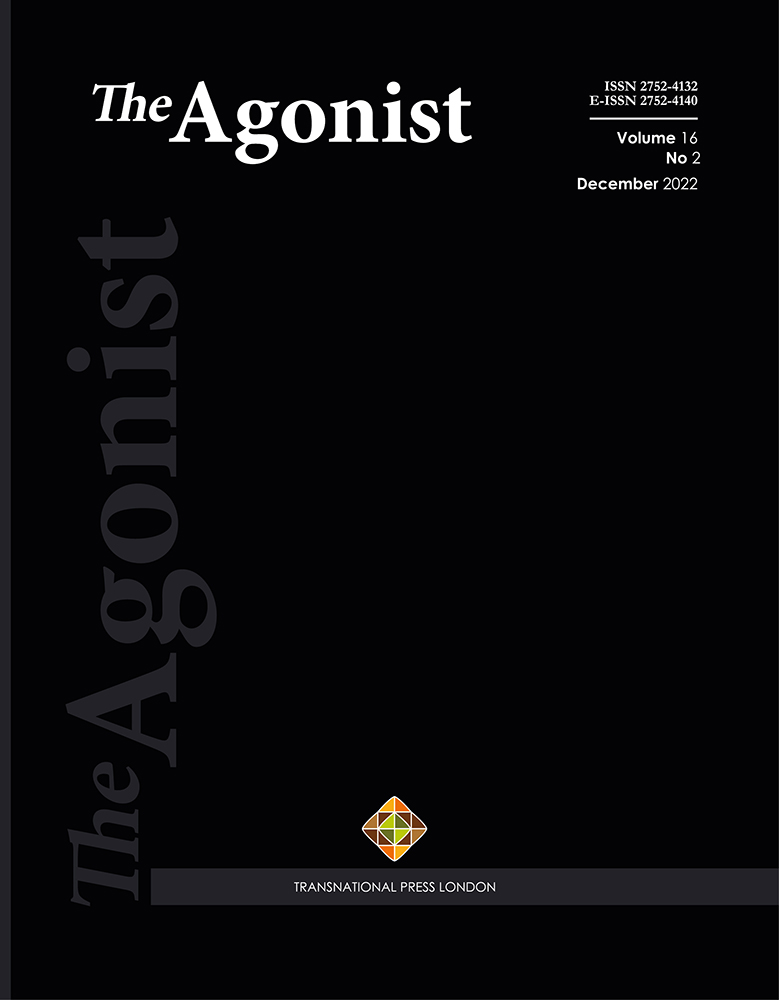
Keywords: Nietzsche; transhumanism; history of ideas; mysticism;
This paper addresses the scholarly debate over Nietzsche’s relationship to transhumanism. Most writing on this topic has focused almost exclusively on whether or not Nietzsche’s thought is philosophically compatible with transhumanist philosophy. Because ideas are not always transmitted in philosophically cogent ways, this approach is inadequate to address the question of how Nietzsche may have influenced transhumanism. I propose replacing the current approach with a history of ideas approach that also tracks “para-philosophical” vectors of influence. Bringing to bear such an approach, I argue that Nietzsche was crucial in laying the groundwork for transhumanism. First, his rejection of Being, of a fixed ontological order, decisively undermined essentialist conceptions of human nature, opening the door to a radical refashioning of the human being such as that envisioned in the transhumanist “posthuman.” Second, Nietzsche’s superman and the transhumanist posthuman are instantiations of apotheosis, a perennial impulse toward self-divinization at the core of many mystical and esoteric systems. The superman represents the ideal of apotheosis filtered through Nietzsche’s materialism and his processual turn, and it is in this modified, post-Nietzschean form that the ideal passes to transhumanism. Finally, I demonstrate that Nietzsche’s thought is not as philosophically incompatible with transhumanism as some critics claim.
More...
Keywords: History; self-cultivation; plastic power; character; experimentation; perspectivism; free spirit;
This paper aims to show how Nietzsche was influenced by Emerson in developing a conception of history as a set of values to be embodied in order to gain a deeper insight into the essence of reality. It is a conception that Nietzsche first expressed in his second Untimely Meditation, On the Uses and Disadvantages of History for Life (1874) and that fully developed in the period of his so-called “free spirit philosophy” (1878-1882). Firstly, I will briefly outline the relationship between Nietzsche and Emerson. Secondly, I will illustrate Emerson’s stance on history. Thirdly, I will show how Nietzsche drew on Emerson’s thought.
More...